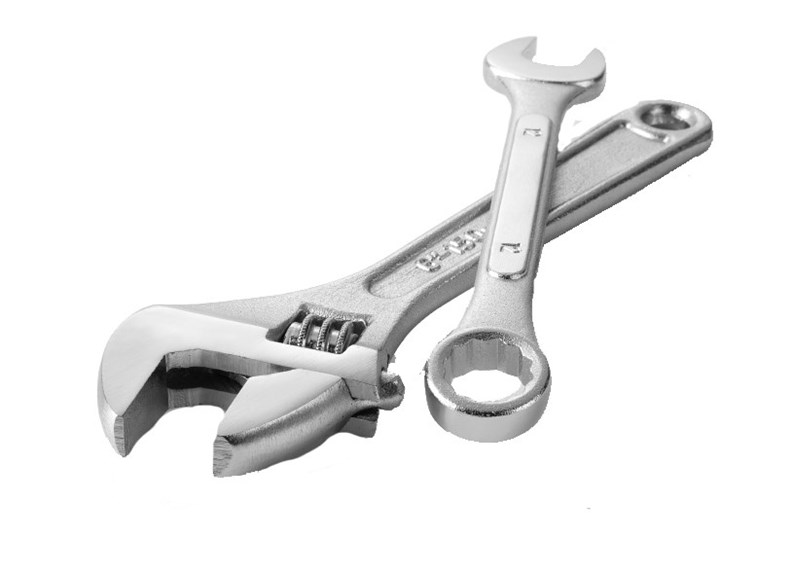The Off-Season:
Keeping Your Boiler Efficient Through the Spring, Summer and Fall
Now that winter is drawing to a close, residential and commercial buildings will soon be switching their heating systems off and their air conditioning systems on. This is the ideal time of year to begin preparing your boiler for the next heating season. There are a number of simple, relatively inexpensive, but necessary, steps to prepare your boiler to operate properly during the spring, summer and fall seasons. Recent inflated oil prices have alerted many buildings to the basic fact that an inefficient boiler will cost a building unnecessary wasted dollars that could be saved with proper maintenance. Such preparation assures the building that the boiler will continue to operate at peak efficiency, translating into meaningful dollar savings.
The first step, and one of the most important, is a major cleaning performed by a reliable company with skilled personnel and proper equipment. One prerequisite for a boiler to efficiently attain proper heat transfer is freeing the fire tubes of soot and scale (which act as an insulator within the tubes). Soot build-up inside the boiler may lead to maintenance problems attributed, in part, to the high sulfur content contained in soot, which creates sulfuric acid and ultimately corrodes the boiler tubes.
Tests that have been conducted by municipalities, heating plant engineers and boiler manufacturers have proven that even a small amount of soot (1/8" to 1/4") will drain boiler efficiency by as much as 30 percent depending on the system. This amount of wasted fuel means wasted dollars to any multi-family building.
Any #2, #4, #6 oil and gas burners should have a properly equipped company perform a "major cleaning" at the end of each heating season. This "major cleaning" consists of wire brushing all the fire tubes, vacuum cleaning the entire boiler, breeching, chamber and chimney base.
Many residential and commercial buildings continue to use their boilers throughout the spring, summer and fall seasons in order to provide hot water to the residents of these buildings. Boilers that are burning the heavier fuels such as #4 and #6 will continue to throw off a residue of soot into the fire tubes and reflecting plates of the boiler. These boilers should receive periodic supplementary cleanings throughout the spring, summer and fall months in order to keep the fire tubes, reflecting plates, tube sheets and chimney base free of soot accumulations which will result in increased boiler efficiency.
During the spring and summer months, all boilers should be checked for leaks, all tubes that may have been plugged during the heating season should be changed and all gasketing should be checked. Any leaking tubes or open seams should be attended to immediately.
Those boilers that are being used to generate hot water during these mild weather months should receive another major cleaning in the fall just prior to the start of the next heating season. This will ensure that your boiler is in proper operating condition enabling it to work at its peak efficiency throughout the next heating season.
Contributed by Irwin Sandler, president of Scientific Boiler/Scientific Boiler Environmental Corp. in Brooklyn.
It's Time For Your AC
How That Magical Machine Keeps Your Apartment Cool
So now that you're boiler has been set up for the off-season, it's time to move over to cooling. "Air conditioning removes the heat by taking moisture out of a room, " says Robert Leavy, general manager of Metro Energy Group in Greenpoint, Brooklyn. "A refrigerant is cooled below air temperature, then a fan circulates that warm air over the surface, distributing the cool air."
According to Mike Kelly, sales manager of Traco HVAC & R Supply in Manhattan, there are three main types of air conditioning used in New York City residential buildings: PTAC units which are very noisy; window and through-the-wall units which are the most common; and fan coil units, through which water that comes down from the water tower on the roof is cooled.
Window units, or the larger version known as through-the-wall units, are the smallest of the self-contained machines. Inside of the cabinet is a compressor, condensing coil, evaporator coil, blower, controls, and maybe a little ductwork. The ductwork and possibly a damper will allow the unit to draw fresh air in or re-circulate 100 percent of room air. An independent heating and cooling information center, Warmair.com, Inc. explains that the end units can have electronics with timers, accurate temperature sensors, and remote controls. By using sound absorbing materials and quieter motors, manufacturers have improved these machines over the years. The efficiency ratings are not as high as central systems (EER ratings) and versatility is limited because all of the cooling is blown into one room, but they get the job done when needed.
Not obvious is the fact that they need maintenance routinely, just like any other machine. The filter, usually located behind the front grill, needs to be washed. The condenser coil at the back of the unit can accumulate a lot of debris, and might require a special chemical bath. All air conditioning systems, large or small, need good air flow across the evaporator coil and the condenser coil. Efficiency and performance drop rapidly as air flow decreases. Lose enough air flow and the unit will burn out. Rodents can nest inside when not in use, and can foul up the unit in many ways. Wasps and hornets, as well as the honey bee, find finned coils to be comfortable nesting places. Nests and dead insects can ruin the air conditioner. Just check for all these little nuisances and make sure you're set for the season.
In the system described above, air is used to dissipate the heat from the outside coil. In large systems, the efficiency can be improved significantly by using a cooling tower. According to Marshall Brain, creator of the award-winning website and newsletter, How Stuff Works, "The cooling tower creates a stream of lower-temperature water. This water runs through a heat exchanger and cools the hot coils of the air conditioner unit. It costs more to buy the system initially, but the energy savings can be significant (especially in areas with low humidity) over time and the system pays for itself fairly quickly."
Cooling towers come in all shapes and sizes, however, they all work on the same principle. Brain explains, "A cooling tower blows air through a stream of water so that some of the water evaporates. Generally the water trickles through a thick sheet of an open plastic mesh, and air blows through the mesh at right angles to the water flow. The evaporation cools the stream of water. Because some of the water is lost to evaporation, the cooling tower constantly adds water to the system to make up the difference."
Of particular interest to homeowners is that gas air conditioning is becoming more common. "It's somewhat less expensive than electricity," says John Connors, manager of Con Edison's Energy Services Department. "And gas is plentiful in the summertime, because it's a winter-peaking fuel. The motors that fire the unit, fire on gas instead of electricity." This could be an alternative for your building. Make sure you know where your cool air comes from and how it gets to your apartment. That'll help determine your options, making sure you remain cool and comfortable during the hot summer months.







Comments
Leave a Comment